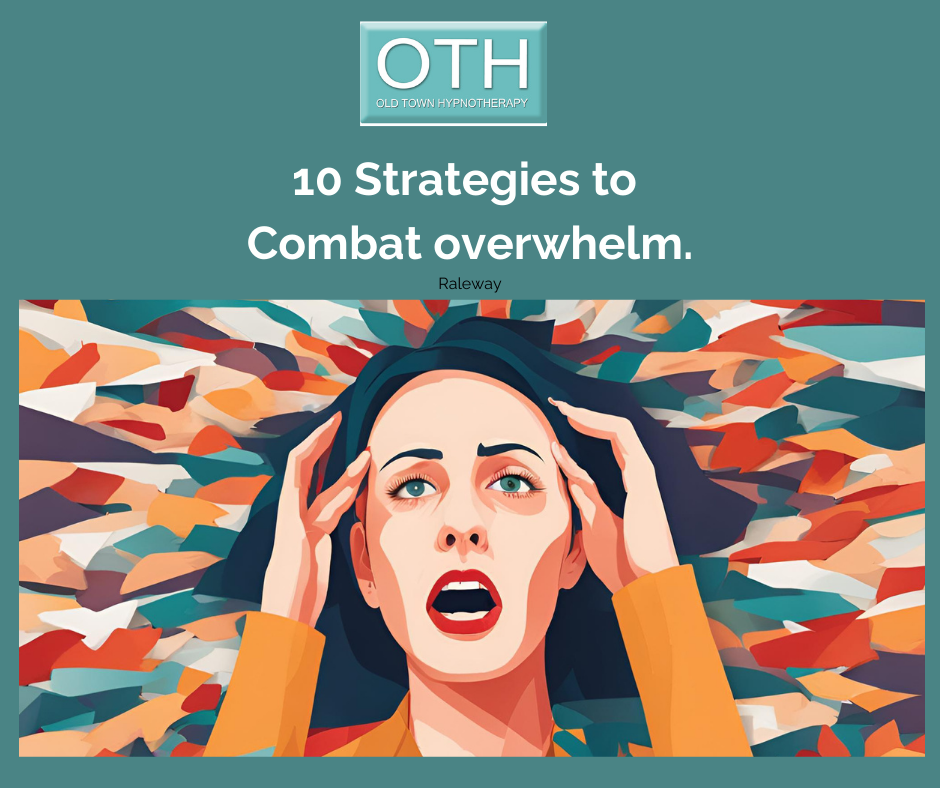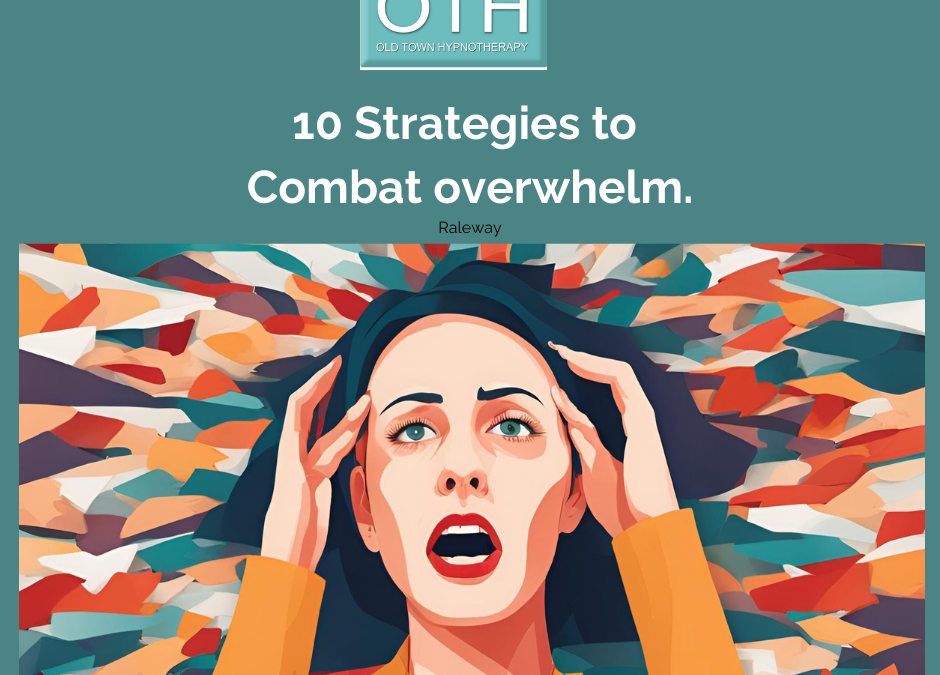
10 Strategies to combat feelings of overwhelm
As we enter the final few days before Christmas and the to do list grows, how do we recognise, and combat, feelings of overwhelm?
What do we mean by Overwhelm?
Overwhelm is a state of feeling emotionally or mentally overloaded. It occurs when the demands placed on an individual exceed their capacity to cope, leaving them stressed, anxious, or frozen. Overwhelm can arise from various sources, such as work pressures, personal responsibilities, unexpected life changes, or emotional distress. Its impact is multifaceted, often affecting mental clarity, emotional stability, and even physical health.
Signs of overwhelm include difficulty focusing, persistent fatigue, irritability, procrastination, and feelings of helplessness. Recognising these symptoms is the first step toward addressing the root cause and regaining control.
Practical Strategies to Manage Overwhelm
- Acknowledge Your Feelings. Suppressing or ignoring feelings of overwhelm can intensify them. Instead, recognise that you are feeling this way. Label it.
- Prioritise and Simplify Tasks. Break down your responsibilities into smaller, manageable parts. Use tools like to-do lists or time-blocking to organise your tasks. Start by identifying urgent and essential activities, then tackle them one at a time. Delegating less critical tasks to others can also ease the burden.
- Practice Mindfulness and Relaxation Techniques. Overwhelm often stems from negatively forecasting or negatively introspecting. Grounding yourself in the present can help alleviate this. Techniques such as deep breathing, meditation, or listening to one of Old Town Hypnotherpy’s collection of therapeutic audios can calm your nervous system and improve clarity. https://oldtownhypnotherapy.co.uk/download-daily-hypnosis-tracks/
- Set Boundaries. Learn to say “no” to requests or commitments that overstretch your capacity. Establishing clear boundaries at work and in personal relationships helps prevent taking on too much. Communicate your limits respectfully but firmly. You will likely be surprised by how swiftly and positively people respond.
- Focus on What You Can Control Where the mind goes, energy flows. Redirect your energy toward aspects of your life that you can influence. Worrying amplifies stress and wastes energy. When feeling overwhelmed, ask yourself: What small step can I take right now to improve this situation?
- Practice Self-Care. Nurture your physical and emotional well-being. A balanced diet, regular exercise, and sufficient sleep can significantly impact your ability to manage stress. Engage in activities that recharge you, such as reading, listening to music, or spending time in nature.
- Seek Support. Sharing your challenges with friends, family members, or a therapist can provide relief and perspective. Sometimes, hearing a different viewpoint and considering potential solutions, can make issues feel less daunting.
- Reframe Negative Thoughts. Overwhelm can magnify negative thinking. Challenge unhelpful thoughts by asking if they’re rational or exaggerated. Change the words you are using. For example, instead of saying, “I’ll never get this done,” reframe it to, “I’ll tackle one thing at a time and do my best.” Positive affirmations can also help shift your mindset.
- Plan Breaks and Rest Periods. Taking regular breaks prevents burnout and refreshes your focus. Step away from work or tasks periodically, even for a few minutes. Use this time to stretch, take a walk, or simply relax without distractions.
- Celebrate Small Wins. Acknowledge your progress, no matter how small. Completing even a minor task can build momentum and boost confidence in your abilities.
Long-Term Prevention of Overwhelm
- Develop a Routine
The human brain loves a routine. Consistency creates structure and reduces uncertainty. Allocate specific times for work, leisure, and self-care and stick to them. - Cultivate Resilience
Building emotional resilience helps you better handle stress. Practices such as gratitude journaling, practising optimism (it’s a skill that can be learnt!), and maintaining strong social connections can enhance your ability to bounce back from challenges. - Simplify Your Life
Decluttering your physical and digital spaces can clear mental clutter as well. Delete the apps and limit mindless scrolling. Evaluate your commitments regularly and let go of activities or obligations that no longer serve you.
Overwhelm is a common but manageable experience. By recognising its signs and employing effective strategies, you can regain control and prevent it from interfering with your well-being. Remember, small, intentional changes can lead to significant improvements in your ability to cope with life’s demands.
If you would like help, we offer free initial consultations for you to find out more. Simply reply to this email and one of our team will be in touch.
Wishing you a peaceful, joyful and merry Christmas.

